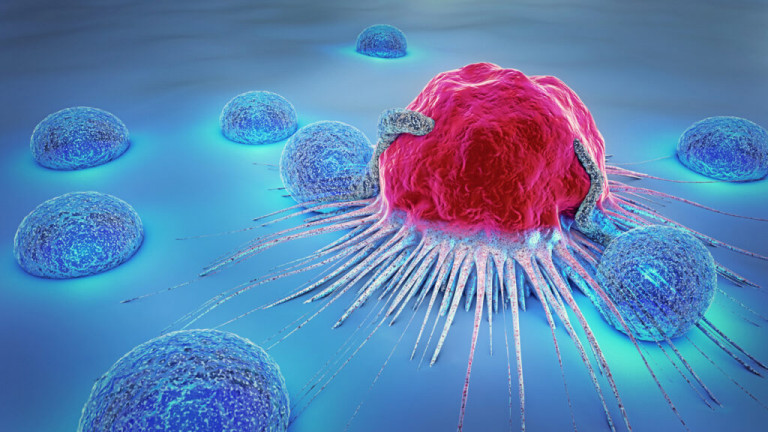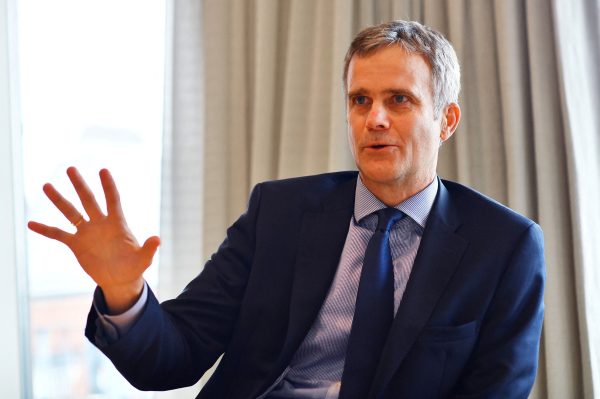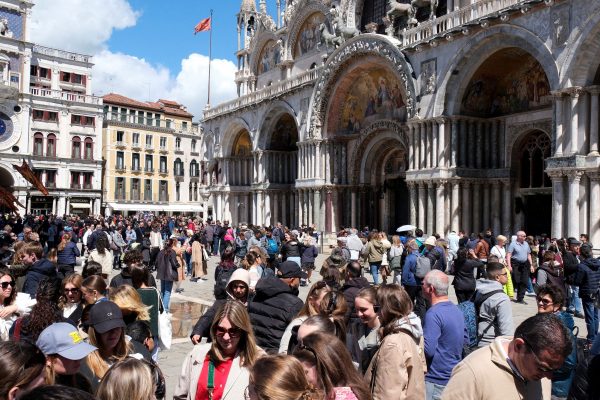
The experts of the Organization for Economic Cooperation and Development and the European Commission, analyzing the data concerning Greece, identify inequalities in patient access as well as gaps in the national strategy for dealing with cancer.
It is indicative that until today no National Register has been created, as a result of which there is no clear picture of how many people live with cancer within the borders.
This is how it is explained, as Evangelos Filopoulos, the president of the Hellenic Cancer Society, reports to “NEA” newspaper, that the figures concerning Greece usually result from reductions based on the data of neighboring countries. However, this way, due to ignorance, a rich database that could be a “compass” for targeted actions is lost.
Important developments
Nevertheless, important developments have been recorded in recent years. More specifically, and while Greece has traditionally been absent from the European map of screening programs, significant interventions are now being made in this neglected but critical field. Thus, after the “Fofi Gennimata” program for the early diagnosis of breast cancer, it is expected that corresponding programs will gradually be implemented for cervical and colon cancer and in a second phase for lung cancer.
At the same time, as Evangelos Filopoulos explains, Greek scientists are participating in important European research programs, such as “HORIZON”, for the development of artificial intelligence systems that aim, among other things, at faster diagnosis and a more effective therapeutic approach. However, he insists that investing in… the future should not distract us from identifying and solving today’s problems. Fatefully, in the context of the priorities that must be set, he places high the treatment of inequalities, given that they cost lives. “For example, if a resident of Skopelos receives an SMS for a mammogram through the ‘Fofi Gennimata’ program, she will have to travel all the way to Volos to undergo the free examination,” he explains in a slick way.
Mobile mammograms
After all, the geographical difficulties of Greece are the reason why the mobile units of the Hellenic Cancer Society have been scouring the country for the last 18 years with the aim of prevention, without discrimination. In this context, in fact, the mobile mammograms are expected to be a “tool” for the full implementation of the breast cancer screening program throughout Greece, even though bureaucratic hurdles still hamper the project.
However, the most critical issue is, according to the President of the Society, the strengthening of the National Health System. “For medical care to be possible for all Greeks with cancer, an efficient public health system is a necessary condition. If, therefore, the NHS is not supported by the state, it will not be able to cope with the needs that arise”.
Indicatively, he states that understaffing is the reason why the wait for the results of histological tests (biopsy) can take up to two months. Despite all this, the “hardest face” of the Greek state is revealed in terminal cancer patients, as Evangelos Filopoulos adds. “The absence of supportive care is the most undignified situation that exists in our country,” he emphasizes, adding that the system is based on the charity of doctors and the sensitivity of anesthesiologists who voluntarily offer palliative care to patients.
Latest News

Hellenic Food Authority Issues Food Safety Tips for Easter
Food safety tips on how to make sure your lamb has been properly inspected and your eggs stay fresh.

Greek Kiwifruit Exports Smash 200,000-Ton Mark, Setting New Record
According to data by the Association of Greek Fruit, Vegetable and Juice Exporters, Incofruit Hellas, between September 1, 2024, and April 17, 2025, kiwifruit exports increased by 14.2%.

Easter Tourism Boom: Greece Sees 18.3% Surge in Hotel Bookings
Among foreign markets, Israel has emerged as the biggest growth driver, with hotel bookings more than doubling—up 178.5% year-on-year.

Greece to Launch Fast-Track Tender for Offshore Hydrocarbon Exploration
Last week, Papastavrou signed the acceptance of interest for the two Cretan blocks, while similar decisions regarding the two Ionian Sea blocks were signed by his predecessor

American-Hellenic Chamber of Commerce to Open Washington D.C. Branch
AmCham's new office aims aims to deepen U.S.-Greece economic ties and promote investment and innovation between the two countries

Why Greece’s New Maritime Spatial Plan Is a Geopolitical Game-Changer
This landmark development is more than just a bureaucratic step — it's a strategic declaration about how Greece intends to use, protect, and assert control over its seas

Eurozone Inflation Eases to 2.2% in March
Compared to February, inflation decreased in 16 member states, remained unchanged in one, and rose in ten.

Bank of Greece: Primary Gov. Surplus €4.1b Jan.-March 2025
The data released today by the Bank of Greece revealed that the central government’s overall cash balance recorded a surplus of €1.465 billion in the first quarter of 2025, compared to a deficit of €359 million in the corresponding period of 2024.

Greek Government Reissues 10-Year Bond Auction for €200 Million
The amount to be auctioned will be up to 200 million euros, and the settlement date is set for Friday, April 25, 2025 (T+5)

Greece Defines Continental Shelf Limits and Maritime Zones in Landmark EU Document
The Maritime Spatial Planning (MSP) framework represents a comprehensive approach to spatial planning and is crucial for the successful development of a blue and circular economy








![Πλημμύρες: Σημειώθηκαν σε επίπεδα ρεκόρ στην Ευρώπη το 2024 [γράφημα]](https://www.ot.gr/wp-content/uploads/2025/04/FLOOD_HUNGRY-90x90.jpg)

































 Αριθμός Πιστοποίησης
Αριθμός Πιστοποίησης